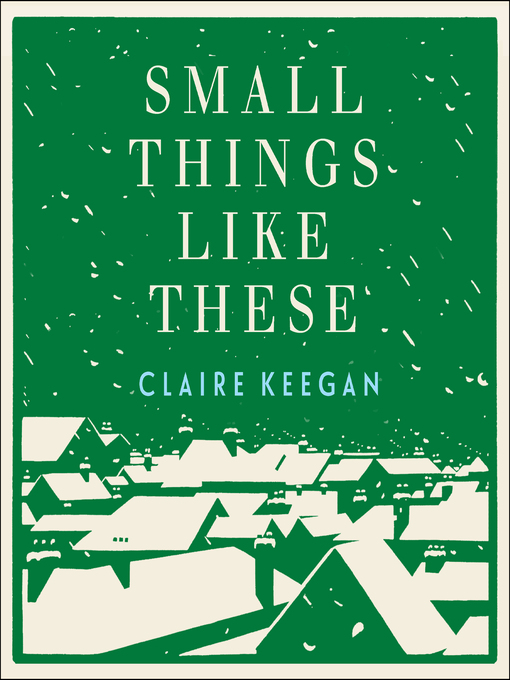

His customers include the local convent, “a powerful-looking place” which runs a laundry and training school for girls. It’s winter 1985, the river “dark as stout, swelled with rain” and children pull up their hoods before leaving the house for school, while mothers hardly dare to hang out the washing.Īs Christmas approaches, the town’s coal and timber merchant Bill Furlong is kept busy. Geographically, we’re in small-town Ireland, a place Keegan understands well.


Its power lies in its simplicity - it almost reads like a fable, consciously laced with nativity references. She dedicates her book to the women and children who “suffered time” in the Magdalene laundries.īut this is first and foremost a story rather than a polemic. There lies the dilemma for the quiet hero of Claire Keegan’s elegiac novella Small Things Like These, which reflects on how girls who ‘got in trouble’ were dealt with in Ireland. How do you make a stand against the willful blindness of your community? Or to put it another way: “Was there any point in being alive without helping one another? Was it possible to carry on along through all the years, the decades, through an entire life, without once being brave enough to go against what was there?” Foster, a short novel, was published in 2010 and won the Davy Byrnes Award, judged by Richard Ford. Claire Keegan lives in County Wexford, Ireland. Her second short-story collection, Walk the Blue Fields, was published to enormous critical acclaim in 2007 and won her the 2008 Edge Hill Prize for Short Stories. It announced her as an exceptionally gifted and versatile writer of contemporary fiction, and she was awarded the Rooney Prize for Literature. Her first collection of short stories, Antarctica, was completed in 1998. Claire Keegan grew up on a farm in Wicklow.


 0 kommentar(er)
0 kommentar(er)
